#peggy orenstein
Explore tagged Tumblr posts
Text
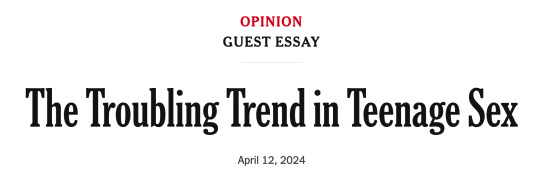
The Troubling Trend in Teenage Sex (Peggy Orenstein, The New York Times, April 12 2024)
"For the past four years, Dr. Herbenick has been tracking the rapid rise of “rough sex” among college students, particularly sexual strangulation, or what is colloquially referred to as choking.
Nearly two-thirds of women in her most recent campus-representative survey of 5,000 students at an anonymized “major Midwestern university” said a partner had choked them during sex (one-third in their most recent encounter).
The rate of those women who said they were between the ages 12 and 17 the first time that happened had shot up to 40 percent from one in four. (…)
Twenty years ago, sexual asphyxiation appears to have been unusual among any demographic, let alone young people who were new to sex and iffy at communication.
That’s changed radically in a short time, with health consequences that parents, educators, medical professionals, sexual consent advocates and teens themselves urgently need to understand.
Sexual trends can spread quickly on campus and, to an extent, in every direction.
But, at least among straight kids, I’ve sometimes noticed a pattern: Those that involve basic physical gratification — like receiving oral sex in hookups — tend to favor men.
Those that might entail pain or submission, like choking, are generally more for women.
So, while undergrads of all genders and sexualities in Dr. Herbenick’s surveys report both choking and being choked, straight and bisexual young women are far more likely to have been the subjects of the behavior; the gap widens with greater occurrences.
(In a separate study, Dr. Herbenick and her colleagues found the behavior repeated across the United States, particularly for adults under 40, and not just among college students.)
Alcohol may well be involved, and while the act is often engaged in with a steady partner, a quarter of young women said partners they’d had sex with on the day they’d met also choked them.
Either way, most say that their partners never or only sometimes asked before grabbing their necks.
For many, there had been moments when they couldn’t breathe or speak, compromising the ability to withdraw consent, if they’d given it.
No wonder that, in a separate study by Dr. Herbenick, choking was among the most frequently listed sex acts young women said had scared them, reporting that it sometimes made them worry whether they’d survive.
Among girls and women I’ve spoken with, many did not want or like to be sexually strangled, though in an otherwise desired encounter they didn’t name it as assault.
Still, a sizable number were enthusiastic; they requested it. It is exciting to feel so vulnerable, a college junior explained.
The power dynamic turns her on; oxygen deprivation to the brain can trigger euphoria.
That same young woman, incidentally, had never climaxed with a partner: While the prevalence of choking has skyrocketed, rates of orgasm among young women have not increased, nor has the “orgasm gap” disappeared among heterosexual couples.
“It indicates they’re not doing other things to enhance female arousal or pleasure,” Dr. Herbenick said.
When, for instance, she asked one male student who said he choked his partner whether he’d ever tried using a vibrator instead, he recoiled. “Why would I do that?” he asked.
Perhaps, she responded, because it would be more likely to produce orgasm without risking, you know, death.
In my interviews, college students have seen male orgasm as a given; women’s is nice if it happens, but certainly not expected or necessarily prioritized (by either partner).
It makes sense, then, that fulfillment would be less the motivator for choking than appearing adventurous or kinky. Such performances don’t always feel good. (…)
Now consider that every year Dr. Herbenick has done her survey, the number of females reporting extreme effects from strangulation (neck swelling, loss of consciousness, losing control of urinary function) has crept up.
Among those who’ve been choked, the rate of becoming what students call “cloudy” — close to passing out, but not crossing the line — is now one in five, a huge proportion.
All of this indicates partners are pressing on necks longer and harder.
The physical, cognitive and psychological impacts of sexual choking are disturbing.
So is the idea that at a time when women’s social, economic, educational and political power are in ascent (even if some of those rights may be in jeopardy), when #MeToo has made progress against harassment and assault, there has been the popularization of a sex act that can damage our brains, impair intellectual functioning, undermine mental health, even kill us.
Nonfatal strangulation, one of the most significant indicators that a man will murder his female partner (strangulation is also one of the most common methods used for doing so), has somehow been eroticized and made consensual, at least consensual enough.
Yet, the outcomes are largely the same: Women’s brains and bodies don’t distinguish whether they are being harmed out of hate or out of love."
50 notes
·
View notes
Text



plush book self-care
#cozy#book#bookblr#self care#self care kit#kit#gift ideas#warm#aesthetic#self love#sheep#jellycat#unraveling#peggy orenstein#soap#felted soap#freshly brewed :] <kits>
8 notes
·
View notes
Text

Instagram: tinypricksproject
THE QUINTESSENTIAL MAGIC OF WOMEN 🪄✨💖✨🪄
#instagram#tinypricksproject#peggy orenstein#the quintessential magic of women#something from nothing#motherhood especially#happy mother’s day
4 notes
·
View notes
Note
Do you have a list of good sex ed books to read?
BOY DO I
please bear in mind that some of these books are a little old (10+ years) by research standards now, and that even the newer ones are all flawed in some way. the thing about research on human beings, and especially research on something as nebulous and huge as sex, is that people are Always going to miss something or fail to account for every possible experience, and that's just something that we have to accept in good faith. I think all of these books have something interesting to say, but that doesn't mean any of them are the only book you'll ever need.
related to that: it's been A While since I've read some of these so sorry if anything in them has aged poorly (I don't THINK SO but like, I was not as discerning a reader when I was 19) but I am still including them as books that have been important to my personal journey as a sex educator.
additionally, a caveat that very few of these books are, like, instructional sex ed books in the sense of like "here's how the penis works, here's where the clit is, etc." those books exist and they're great but they're also not very interesting to me; my studies on sex are much more in the social aspect (shout out to my sociology degree) and the way people learn to think about sex and societal factors that shape those trends. these books reflect that. I would genuinely love to have the time to check out some 101 books to see how they fare, but alas - sex ed is not my day job and I don't have the time to dedicate to that, so it happens slowly when it happens at all. I've been meaning to read Dr. Gunter's Vagina Bible since it came out in 2019, for fucks sake.
and finally an acknowledgement that this is a fairly white list, which has as much to do with biases with academia and publishing as my own unchecked biases especially early in my academic career and the limitations of my university library.
ANYWAY here's some books about sex that have been influential/informative to me in one way or another:
The Trouble With Normal: Sex, Politics, and the Ethics of Queer Life (Michael Warner, 1999)
Virginity Lost: An Intimate Portrait of First Sexual Experiences (Laura M. Carpenter, 2005)
Virgin: The Untouched History (Hanne Blank, 2007)
Sex Goes to School: Girls and Sex Education Before the 1960s (Susan K. Freeman, 2008)
Bonk: The Curious Coupling of Science and Sex (Mary Roach, 2008)
Transgender History: The Roots of Today's Revolution (Revised Edition) (Susan Stryker, 2008)
The Purity Myth: How America's Obsession with Virginity is Hurting Young Women (Jessica Valenti, 2009)
Not Under My Roof: Parents, Teens, and the Culture of Sex (Amy T. Schalet, 2011)
Straight: The Surprisingly Short History of Heterosexuality (Hanne Blank, 2012)
Rewriting the Rules: An Integrative Guide to Love, Sex and Relationships (Meg-John Barker, 2013)
The Sex Myth: The Gap Between Our Fantasies and Realities (Rachel Hills, 2015)
Come as You Are: The Surprising New Science That Will Tranform Your Sex Life (Emily Nagoski, 2015)
Not Gay: Sex Between Straight White Men (Jane Ward, 2015)
Too Hot to Handle: A Global History of Sex Education (Jonathan Zimmerman, 2015)
American Hookup: The New Culture of Sex on Campus (Lisa Wade, 2017)
Buzz: A Stimulating History of the Sex Toy (Hallie Lieberman, 2017)
Histories of the Transgender Child (Jules Gill-Peterson, 2018)
Revolting Prostitutes: The Fight for Sex Workers' Rights (Juno Mac and Molly Smith, 2018)
Ace: What Asexuality Reveals About Desire, Society, and the Meaning of Sex (Angela Chen, 2020)
Pleasure in the News: African American Readership and Sexuality in the Black Press (Kim Gallon, 2020)
A Curious History of Sex (Kate Lister, 2020)
Boys & Sex: Young Men on Hookups, Love, Porn, Consent, and Navigating the New Masculinity (Peggy Orenstein, 2020)
Black Women, Black Love: America's War on Africa American Marriage (Dianne M. Stewart, 2020)
The Tragedy of Heterosexuality (Jane Ward, 2020)
Hurts So Good: The Science and Pleasure of Pain on Purpose (Leigh Cowart, 2021)
Strange Bedfellows: Adventures in the Science, History, and Surprising Secrets of STDs (Ina Park, 2021)
The Right to Sex: Feminist in the Twenty-First Century (Amia Srinivasan, 2021)
Love Your Asian Body: AIDS Activism in Los Angeles (Eric C. Wat, 2021)
Superfreaks: Kink, Pleasure, and the Pursuit of Happiness (Arielle Greenberg, 2023)
676 notes
·
View notes
Note
Hi again! Yeah, from your bookshelf! You seem well informed and I wanna know the type of stuff you read and might recommend. I don't even know what to tell you for my interests because I feel like I'm just begining. Sorry I'm young and dumb still haha.
#1 you're not dumb and #2 nothing to apologize for :)
Here's some books I've got on my shelves or that I've read:
Men Who Hate Women: From Incels to Pickup Artists, Laura Bates
Pro: Reclaiming Abortion Rights, Katha Pollitt
Women, Race, & Class, Angela Davis
American Girls, Nancy Jo Sales
Lesbian Culture: An Anthology, eds. Julia Penelope and Susan J Wolf
Lesbian Studies, Margaret Cavendish
Hood Feminism, Mikki Kendall
Against White Feminism, Rafia Zakaria
Sister and Brother: Lesbians and Gay Men Write About Their Lives Together, eds Joan Nestle and John Preston
Another Mother Tongue, Judy Grahn
Aimee & Jaguar, Erica Fischer
Mouths of Rain: An Anthology of Black Lesbian Thought, ed. Briona Simone Jones
Same-Sex Unions in Premodern Europe, John Boswell
The Mary Daly Reader, eds. Jennifer Rycenga and Linda Barufaldi
Hidden from History: Reclaiming the Gay and Lesbian Past, eds. Martin Duberman, Martha Vicinus, George Chauncey Jr.
Testosterone Rex: Myths of Sex, Science, and Society, Cordelia Fine
Speaking Freely: Unlearning the Lies of the Father's Tongue, Julia Penelope
The Resisting Reader, Judith Fetterley
The Double X Economy, Linda Scott
Not That Bad: Dispatches from Rape Culture, ed. Roxane Gay
Home Grown: How Domestic Violence Turns Men Into Terrorists, Joan Smith
Intercourse, Andrea Dworkin
The Trials of Nina McCall: Sex, Surveillance, and the Decades-Long Government Plan to Imprison "Promiscuous" Women, Scott Stern
The Politics of Reality: Essays in Feminist Theory, Marilyn Frye
Only Words, Catharine A. Mackinnon
Everything Below the Waist: Why Health Care Needs a Feminist Revolution, Jennifer Block
Witchcraze: A New History of the European Witch Hunts, Anne Llwellyn Barstow
Cinderella Ate My Daughter: Dispatches from the Frontlines of the New Girlie-Girl Culture, Peggy Orenstein
Invisible Women: Data Bias in a World Designed for Men, Caroline Criado-Perez
Lesbian Ethics: Toward New Values, Sarah Lucia Hoagland
We Were Feminists Once: From Riot Grrrl to CoverGirl, the Buying and Selling of a Political Movement, Andi Zeisler
Of Woman Born: Motherhood as Experience and Institution, Adrienne Rich
On Lies, Secrets, and Silence: Selected Prose, Adrienne Rich
Feminism, Animals, and Science: The Naming of the Shrew, Lynda Birke
The Female Body in Western Culture: Contemporary Perspectives, ed. Susan Rubin Suleiman
Borderlands/La Frontera: The New Mestiza, Gloria Anzaldua
Flesh Wounds: The Culture of Cosmetic Surgery, Virginia L Blum
Black Feminist Thought: Knowledge, Consciousness, and the Politics of Empowerment, Patricia Hill Collins
Pornland: How Porn has Hijacked our Sexuality, Gail Dines
Backlash: The Undeclared War Against American Women, Susan Faludi
From Eve to Dawn: A History of Women in the World, Marilyn French
This Bridge Called My Back: Writings by Radical Women of Color, eds. Cherrie Moraga and Gloria Anzaldua
Seeing Like a Feminist, Nivedita Menon
With Her Machete In Her Hand: Reading Chicana Lesbians, Catriona Reuda Esquibel
The Disappearing L: Erasure of Lesbian Spaces and Culture, Bonnie J. Morris
Foundlings: Lesbian and Gay Historical Emotion before Stonewall, Christopher Nealon
The Persistent Desire: A Butch/Femme Reader, ed. Joan Nestle
The Straight Mind and Other Essays, Monique Wittig
The Trouble Between us: An Uneasy History of White and Black Women in the Feminist Movement, Winifred Breines
Right-Wing Women, Andrea Dworkin
Woman Hating, Andrea Dworkin
Why I Am Not A Feminist, Jessica Crispin
Sapphistries: A Global History of Love Between Women, Leila J Rupp
I tried to avoid too many left turns into my specific interests although if you passionately want to know any of those, I can make you some more lists LOL
I would suggest picking a book that sounds interesting and using the footnotes and bibliography to find more to read. I've done that a lot :) a lot of my books have more sticky tabs or w/e in the bibliography than in the text so I don't lose stuff I'm interested in.
Hope this helps!
40 notes
·
View notes
Note
Hello! I'm really curious, what books/authors would you recommend to someone who's new to writing horror?
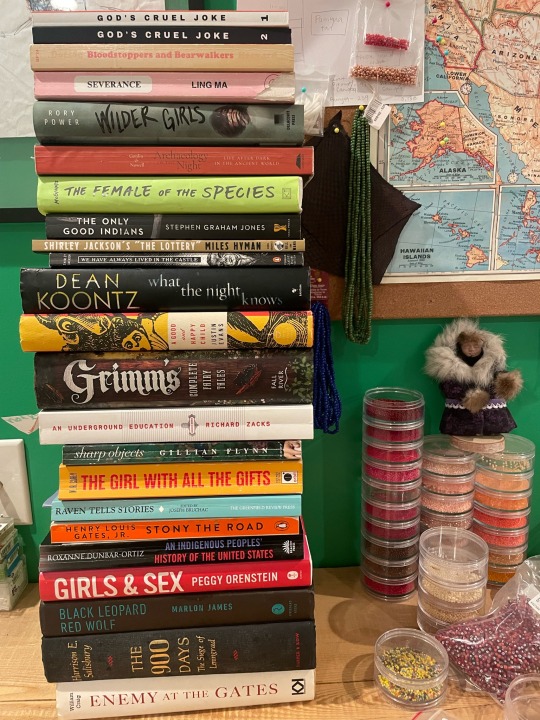
Hi! Here is what I have on hand (minus my loaned out copies of my favorite book ever Mongrels by Stephen Graham Jones and Never Whistle At Night: an indigenous anthology of dark fiction which made me cry on an airplane and made the person next to me very uncomfortable, like she was just trying to build a cart at banana republic, apologies to seat 17B)
God’s Cruel Joke Lit Mag because I’m in them and will be in issue 4, too :) published either mid-January or February 2024– @labyrinthphanlivingafacade is in issue 3 with a great short story that I won’t spoil ***right now the magazines are available to purchase in physical copies but I was told all issues will be free to download as pdfs pretty soon!
Severance by Ling Ma (body horror but not in the way you think, the real horror is repetition and loneliness)
Wilder Girls by Rory Power (body horror)
The Female of the Species by Mindy McGinnis (adjacent the horror genre but a hell of a read)
ANYTHING BY STEPHAN GRAHAM JONES ANYTHING
We Have Always Lived in a Castle by Shirely Jackson (I read this for the first time last spring boy howdy, I also included The Lottery for its suspense)
Dean Koontz because my husband suggested it for the list— this was just the first title I grabbed, I think he said Patrician Crowell too but I was busy looking for Mongrels
A Good and Happy Child by Justin Evans (I didn’t finish this because depression set in shortly after I started but the first chapter plays with second pov which I really liked, I’m determined to read it this year)
Sharp Objects by Gillian Flynn (I really enjoyed HBO’s adaptation)
The Girl With All The Gifts by M.R. Carey (likely the only zombie stories that made me weep uncontrollably)
Girls & Sex by Peggy Orenstein (non-fiction: explores modern young women navigating sexuality and because I have a thing for loss of autonomy— it’s been a few years since I read it but there is discussion of sexual assault, but I appreciate the expanse of her research and even included a conversation with someone who is asexual)
Black Leopard Red Wolf by Marlon James (got a chill just typing this out— the audio book is exquisite)
You’ll notice some nonfiction because, as a historian undergrad, nothing scares me more than man. The battles of Leningrad and Stalingrad are particularly stomach churning. America’s Reconstruction Era is full of acted out malice and under taught in my opinion.
An Indigenous People’s History of the United States by Roxanne Dunbar-Ortiz
The 900 Days, The Siege of Leningrad by Harrison E. Salisbury
Enemy at the Gates by William Craig
(On the other side of WW2 I have a book of the experiences of German solider’s left over from a paper I wrote on the inadequacy of Nazi uniforms and how it expedited their failure in Russia, Frontsoldaten by Stephen G. Fritz)
Stony the Road by Henry Louis Gates, Jr (one of my favorite authors, try finding “How Reconstruction Still Shapes American Racism” Time Magazine, April 2, 2019, I used it as a source for a paper on the history of voting rights)
Bloodstoppers and Bearwalkers— folk tales of Canadians, Lumberjacks & Indians by Richard M. Dorson (published around 1952 but content collected from the Upper Peninsula of Michigan in the 40’s)
Raven Tells Stories: An Anthology of Alaskan Native Writing (I’m Alutiiq and the museum on Kodiak has a lot of stories recorded under Alutiiq Museum Podcast— my kids and I listen on Spotify)
I think the genre of horror is really mastering tension and playing on peoples fears which is why I included old school folk stories (An Underground Education had a great write up on the Grimm Brothers and the original fairy tales from around the world such as the Chinese and Egyptian Cinderella, as well as several different sections of funny tales, torture techniques, absolute weirdos etc etc) in this vein of thought The Uses of Enchanment: The Meaning and Importance of Fairy Tales by Bruno Bettelheim could prove to be useful
If you’re writing a character with Bad Parents— Adult Children of Emotionally Immature Parents and Toxic Parents (it has a longer subtitle but I don’t see my copy anywhere) might be able to help you shape character traits
I reached out to @littleredwritingcat who has a mind plentiful in sources who recommended
The Gathering Dark: an anthology of folk horror (I will be picking this one up asap)
Toll by Cherie Priest (southern gothic)
Anything by Jennifer MacMahon
The Elementals by Michael McDowell
#book recommendations#answered#is that my ask box tag? I never get them and forget everytime lmao#I feel like I should have prefaced this with how I’m just dipping my toes into horror myself#so I’d love to hear what other people are reading too!!!!
29 notes
·
View notes
Note
2, 3, and 20!
2. Did I reread anything?
Yep! The Bluest Eye by Toni Morrison on my own, and Never Let Me Go by Kazuo Ishiguro and Life of Pi by Yann Martel (audiobook) for a class. I was in high school or college when I read those before, and I think I have more empathy for the kids in TBE and Ruth in NLMG than I did then. Also I think Martel's take on zoos and religion has held up well.
I also listened to a bunch of Harry Potter audiobooks on CD while driving this summer after a friend who was moving gave me a crate of them. Given the sort of person JK Rowling has revealed herself to be the last few years, I was listening especially for how empathy works in the books. I have so many thoughts about them now but I'll save them for another post.
3. Top 5 Books
Ok so I have a hard time comparing fiction and NF so I'm just gonna do five of each:
Fiction The Color Purple by Alice Walker The Briar Club by Kate Quinn You Should Be So Lucky by Cat Sebastian The Scandalous Confessions of Lydia Bennet, Witch by Melinda Taub What It Means When a Man Falls from the Sky by Lesley Nneka Arimah
Nonfiction The Devil's Element by Dan Egan Unraveling by Peggy Orenstein The Secret History of Bigfoot by John O'Connor The Queens of Animation by Natalia Holt World of Wonders by Aimee Nezhukamatathil
20 What did I anticipate and did it meet expectations?
The two books I most anticipated were The Briar Club by Kate Quinn, which was fantastic, and The Seventh Veil of Salome by Silvia Moreno-Garcia, which was disappointing. I've restarted it several times as recently as this morning, and after 70 plus pages officially gave up. There are two many characters (generally flat) and not enough plot, and the writing is all over the place. Moreno-Garcia is fantastic--I love Mexican Gothic--but this is not her best.
Thanks for the ask! I could talk about books all day!
3 notes
·
View notes
Text
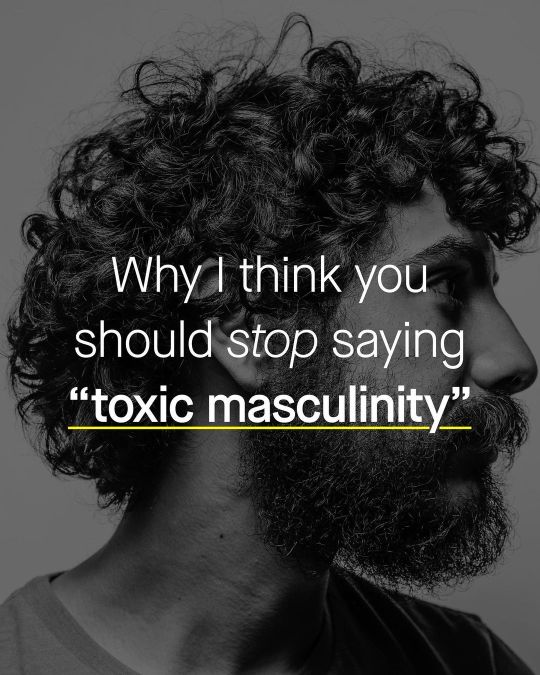
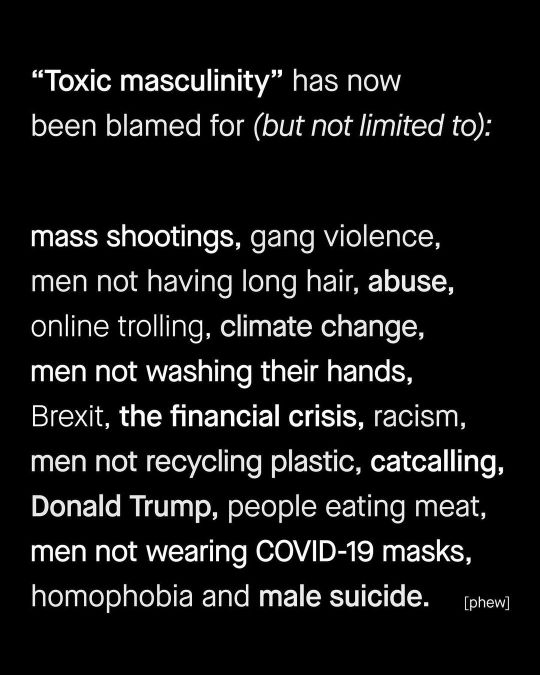
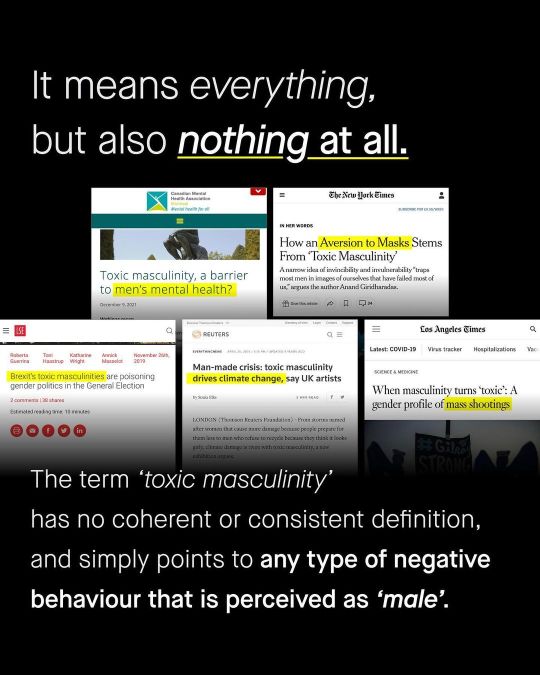
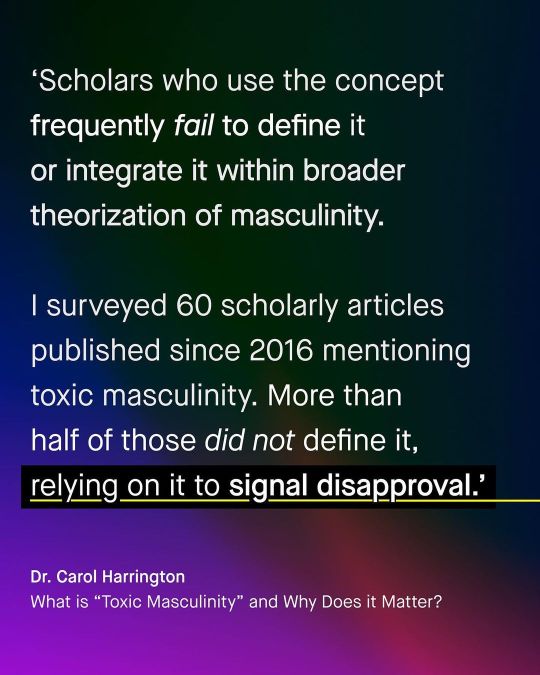
However, scholars who use the concept frequently fail to define it or integrate it within broader theorization of masculinity. I surveyed 60 scholarly articles published since 2016 mentioning toxic masculinity. More than half of those did not define it, relying on it to signal disapproval. The book Toxic Geek Masculinity (Salter and Blodgett 2017), for instance, uses the term frequently without definition.
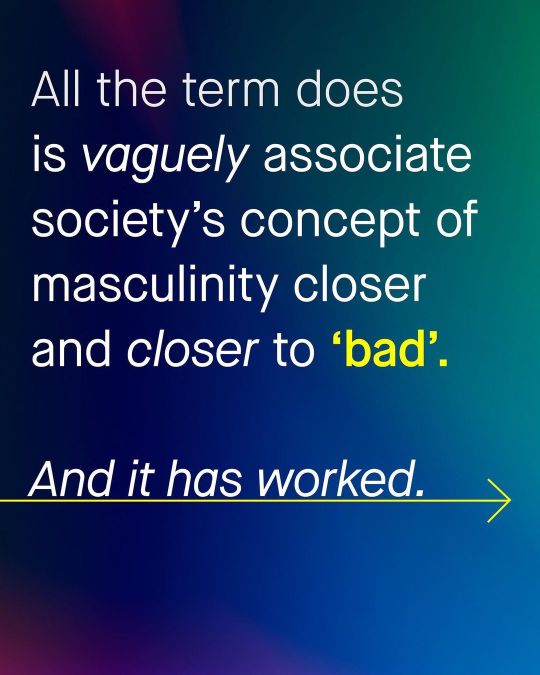

Working With Men, an award-winning UK charity supporting positive male activity and engagement, today released the results of its Future Men 2018 Survey. The survey revealed that UK society has a negative view of the word ‘masculine’, with very few respondents associating masculinity with positive human traits such as care/ kindness (3%), respectfulness (1%), honesty (1%) and supportiveness (1%).
The research, conducted by YouGov, polled a nationally representative sample of 2,058 British adults, highlighting the public’s views on masculinity and what it means “to be a man” in the UK.

By 2017, there were thousands of mentions, mostly in the mainstream media. Harrington points out that the term is almost never defined, even by academics, and is instead used to simply “signal disapproval.” Lacking any coherent or consistent definition, the phrase now refers to any male behavior that the user disapproves of, from the tragic to the trivial. It has been blamed, among other things, for mass shootings, gang violence, rape, online trolling, climate change, the financial crisis, Brexit, the election of Donald Trump, and an unwillingness to wear a mask during the COVID-19 pandemic. Lumping together terrorists and delinquents, it ultimately poisons the very idea of masculinity itself. Interviewing dozens of adolescent boys and young men for her book Boys and Sex, Peggy Orenstein always asked them what they liked about being a boy. She says most drew a blank. “That’s interesting,” one college sophomore told her. “I never really thought about that. You hear a lot more about what is wrong with guys.”
Toxic masculinity is a counterproductive term. Very few boys and men are likely to react well to the idea that there is something toxic inside them that needs to be exorcized. This is especially true given that most of them identify quite strongly with their masculinity. Nine in ten men and women describe themselves as either “completely” or “mostly” masculine or feminine. These gender identities are held quite strongly too. Almost half of men (43%) said their sex was “extremely important” to their identity. In another survey by Pew Research Center, a similar proportion of men (46%) said that it was either very or somewhat important for others to see them as “manly or masculine.” (In both surveys, the numbers were even higher for women.) In other words, most people identify pretty strongly as either masculine or feminine. It is a bad idea to send a cultural signal to half the population that there may be something intrinsically wrong with them.

Reactions to contemporary narratives about masculinity: A pilot study
Masculinity is frequently talked about in contemporary Western media as being in crisis, needing reform or even being ‘toxic’. However, no research to date has assessed the impact that this pervasive narrative might be having on people, particularly men themselves. This cross-sectional online pilot survey asked 203 men and 52 women (mean + SD age 46 + 13) their opinions about the terms toxic masculinity, traditional masculinity, and positive masculinity, and how they would feel if their gender was seen as the cause of their relationship or job problems. Most participants thought the term toxic masculinity insulting, probably harmful to boys, and unlikely to help men’s behaviour. Having feminist views, especially being anti-patriarchy, were correlated with more tolerance of the term toxic masculinity. Most participants said they would be unhappy if their masculinity or femininity were blamed for their work or relationship problems. Further analysis using multiple linear regression found that men’s self-esteem was significantly predicted by older age, more education, and a greater acceptance of traditional masculinity. Men’s mental positivity – which is known to be negatively correlated with suicidality – was significantly predicted by older age, a greater acceptance of traditional masculinity, and more education. Implications for the mental health of men and boys are discussed in relation to the narrative around masculinity in the media, social sciences, and in clinical psychology.

35 notes
·
View notes
Text
January 2023 Reads

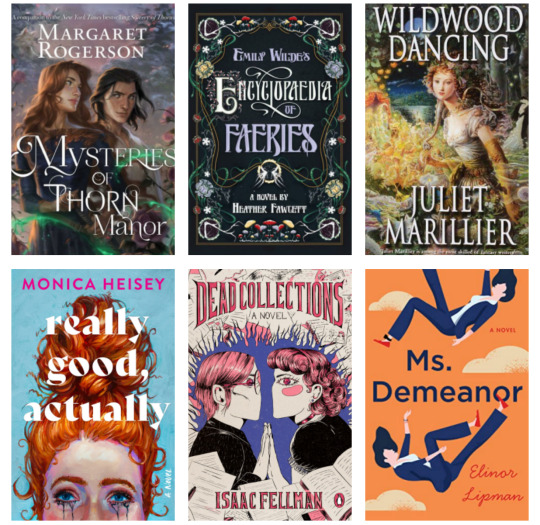
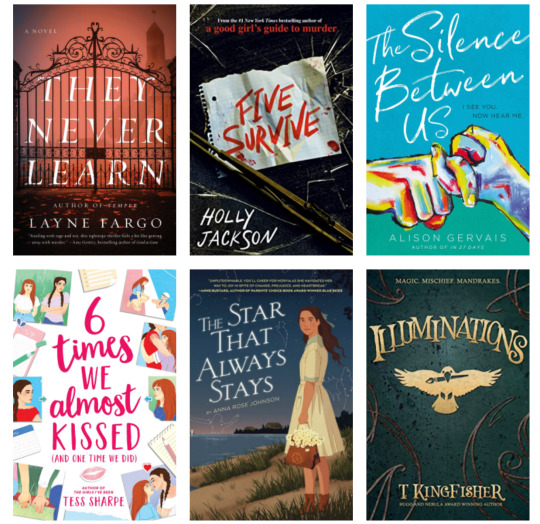

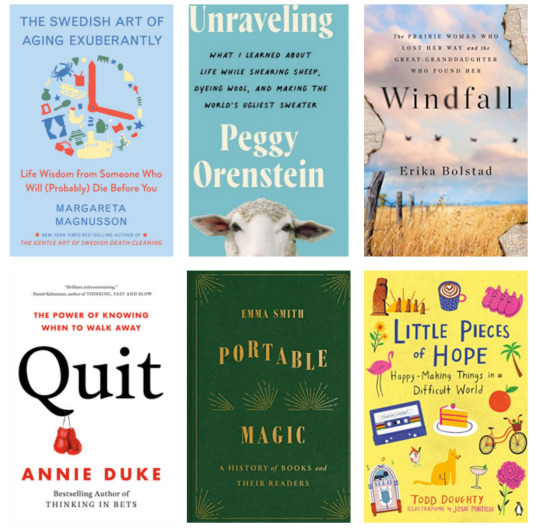
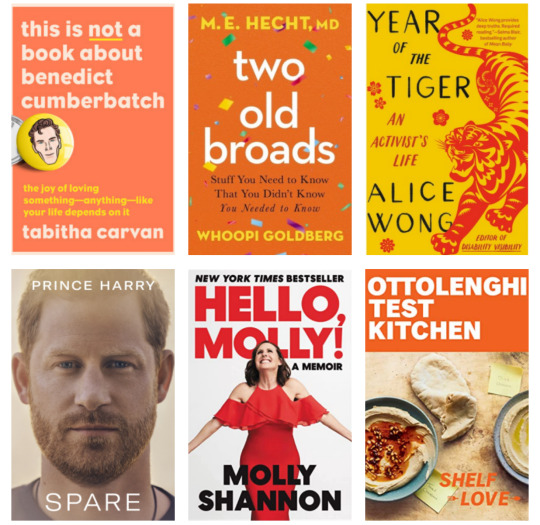
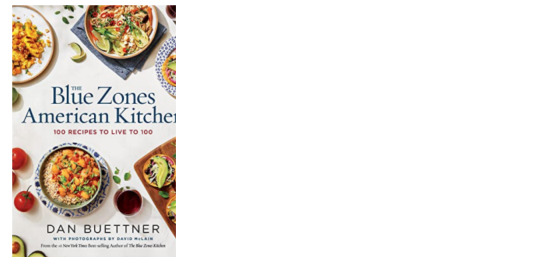
Partners in Crime - Alisha Rai
Never Ever Getting Back Together - Sophie Gonzales (thank you, carrie!)
The Key to My Heart - Lia Louis
A Little Bit Country - Brian D. Kennedy
Funny You Should Ask - Elissa Sussman
A Guide to Being Just Friends - Sophie Sullivan
Mysteries of Thorn Manner - Margaret Rogerson
Emily Wilde’s Encyclopaedia of Faeries - Heather Fawcett
Wildwood Dancing - Juliet Marillier
Really Good, Actually - Monica Heisey
Dead Collections - Isaac Fellman
Ms. Demeanor - Elinor Lipman
They Never Learn - Layne Fargo
Five Survive - Holly Jackson
The Silence Between Us - Alison Gervais
6 Times We Almost Kissed - Tess Sharpe
The Star That Always Stays - Anna Rose Johnson
Illuminations - T. Kingfisher
The Witch Boy - Molly Knox Ostertag
Witchlight - Jessi Zabarsky
Hawkeye, Vol 1 - Matt Fraction
Hawkeye, Vol 2 - Matt Fraction
You Can Do All Things - Kate Allan
Divergent Mind - Jenara Nuremberg
The Swedish Art of Aging Exuberantly - Margareta Magnusson
Unraveling - Peggy Orenstein
Windfall - Erika Bolstad
Quit - Annie Duke
Portable Magic - Emma Smith
Little Pieces of Hope - Todd Doughty (thanks, kim!)
This is Not a Book About Benedict Cumberbatch - Tabitha Carvan
Two Old Broads - Dr M.E. Hecht and Whoopi Goldberg
Year of the Tiger - Alice Wong
Spare - Prince Harry
Hello, Molly! - Molly Shannon
Ottolenghi Test Kitchen: Shelf Love - Yotam Ottolenghi
The Blue Zones American Kitchen - Dan Buettner
Bold = Highly Recommend Italics = Worth It Crossed out = Nope
Thoughts:
This was a really good reading month to start the year with. I was able to get to quite a few of the books on my physical TBR and really enjoyed the two books I was most looking forward to: Mysteries of Thorn Manor and Emily Wilde’s Encyclopaedia of Faeries.
Goodreads Goal: 37/400
2017 Reads | 2018 Reads | 2019 Reads | 2020 Reads | 2021 Reads |
2022 Reads | 2023 Reads
51 notes
·
View notes
Text
Boys & Sex: Young Men on Hookups, Love, Porn, Consent, and Navigating the New Masculinity (Peggy Orenstein, 2020)
"When the men realized that their actions conflicted with their stated beliefs, they expanded their definitions of consent rather than questioning their behavior.
Their ideas of “yes” turned out to be so elastic that for some they encompassed actions that met the legal criteria for assault—such as the guy who had coerced his girlfriend into anal sex (she had said, “I don’t want to, but I guess I’ll let you”).
She made it clear that he should stop.
“He did, eventually,” Bedera told me, “and he seemed aware of how upset she was, but he found a way to rationalize it: he was angry with her for refusing him because he thought a real man shouldn’t have had to beg for sex.”
Perhaps that should not be surprising, given that men who are incarcerated for committing old-school rape—those stranger-in-a-dark-alley guys—also typically believe that their victims wanted it and for many of the same reasons: moaning (which can indicate pain as well as pleasure), accelerated heart rate (a sign of terror as well as excitement), vaginal lubrication (which is involuntary).
They, too, generally deny “rape,” even if they acknowledge the more euphemistic “nonconsensual sex.”
The truth is, research has shown young men to have a remarkably sophisticated and subtle understanding of sexual refusal, regardless of whether a partner ever utters the word “no”; that renders dubious the common defense that they “can’t tell” or “aren’t mind readers.”
What’s more, where “yes” is concerned, guys seem downright clairvoyant.
Bedera’s subjects considered such nonsexual physical cues as direct eye contact to be clear propositions.
Obviously, looking into someone’s eyes doesn’t always signal seduction, and guys know that.
When I, a middle-aged woman, would look straight at them while asking about, say, cunnilingus, not a single one mistook that for a come-on.
Yet, when my eighteen-year-old female intern conducted interviews at her college, every guy hit on her: the same questions from an attractive peer were sexualized because the boys wanted them to be.
Some guys Bedera talked to believed smiling indicated a girl wanted to have sex: it might, though people smile for all sorts of reasons, including discomfort and appeasement.
Compliments were another frequently cited indicator (causing me to reconsider expressing admiration for a male passenger’s stylish luggage the last time I was on an airplane).
Standing close. Dancing. Touching someone’s arm during conversation.
A third of the supposed sexual signals came up only once in Bedera’s study, making it hard to ever predict what a man might see as an invitation: a random emoji; the lack of a bra; sitting on a guy’s lap in a crowded car.
True, any of those might have meant sexual interest—or not.
The only thing they all had in common was that the guy in question read them as evidence.
The boys also tended to equate enthusiastic participation in any sexual act (such as kissing) with enthusiastic consent to vaginal intercourse.
When they drink, young (and not so young) men are even more likely to overestimate female sexual interest—as well as to overstate women’s role as initiators—interpreting any expression of friendliness by a girl as: It’s on."
20 notes
·
View notes
Text
It’s just like preventative botox Peggy Orenstein teen choking nyt article Taylor swift Travis kelce trad wife tiktok the cut age gap article ozempic deepfake porn in high schools my best friend is afraid if she breaks up with their controlling bf he’ll kill himself girl math new Johnny depp movie new brad pitt movie new woody Allen movie new photos of Kanye wests wife basically naked next to him the same 2 rapists running for president again abortion laws getting slaughtered left and right abortion pill costs 500 dollars teenage girls are afraid to be vanilla in bed it’s getting warm so new commercials to remind us every body is unique and beautiful as long as it’s shaved can’t say that word rape or murder on tiktok but here’s a deepfake of an airbrushed Nicole Simpson describing what happened to her but don’t worry she’ll only use code words and don’t forget to like and subscribe for more dead women and girls to flatly describe what was done to them I feel so so sick every time !!! My god!!!!
#I feel incredibly lucky to be a lesbian and to be surrounded by people who are so thoughtful about this but . I’m also watching people I#love (mostly younger) living their lives by the rules about how to be a woman but in a snatched sexy cool girl fuckable way#and it makes me want to blow my brains out
5 notes
·
View notes
Text
Books read October-December
My goal was to read 120 books this year. I just finished number 129. (Some of these I reviewed as part of my WWW posts).
October:
Remarkably Bright Creatures by Shelby Van Pelt. I had high expectations for this book, as it had been so praised, and I felt let down by it. Still enjoyable, but needed more octopus. Gender Queer by Maia Kobabe. Read as part of Banned Books week. The Romance Rx by Kathryn Riya. I wanted more medicine and medicine-related residency drama. Unraveling: What I Learned about Life While Shearing Sheep, Dyeing Wool, and Making the World’s Ugliest Sweater by Peggy Orenstein. Just a really lovely memoir about life changing and feeling present in the world. The Unfortunate Side Effects of Heartbreak and Magic by Breanne Randall. Such a disappointing book. Deerskin by Robin Mckinley. Reread. Not my favorite book of hers, but it’s still a great retelling.
November:
Kaikeyi by Vaishnavi Patel. A retelling of an old Hindu religious myth, a story I was only passingly familiar with. I enjoyed the world building, I had trouble with some of the motivations of the characters. And I think it’s hard to write a retelling of a story that a major religion is based on. Piranesi by Susanna Clarke. This is such a wonderful book, with the mystery and characters slowly being revealed. The Halcyon Fairy Book by T. Kingfisher. Just witty retellings of fairy tales with a lot of humor and grim. The Anthropocene Reviewed: Essays on a Human-Centered Planet by John Green. I really loved this collection of essays on our world. Braiding Sweetgrass: Indigenous Wisdom, Scientific Knowledge, and the Teachings of Plants by Robin Wall Kimmerer. Audiobook. A beautiful exploration of our connection with the world and how we can heal that relationship. The Bookish Life of Nina Hill by Abby Waxman. Library find. Cute light book, (although if I had a boss who didn’t pay the rent for 6 months straight and I was threatened with losing my job because of it, I wouldn’t be all “oh she’s just that way”) but one that I probably won’t remember in a year or two. The Twisted Ones by T. Kingfisher. The atmosphere in this book is almost its own character. I loved the secondary characters, but the middle sagged a lot. Fourth Wing by Rebecca Yarros. I struggled so much with the beginning, because the set up was so ridiculous. It picked up after that and ended strongly. I don’t know how she’s going to write a 5 book series though. The Magical Language of Others by E.J. Koh. NPR did a write up on her debut novel, but it wasn’t available at the library. It was a quick read but I found the writing to be confusing in places and lacking in emotional growth. Check & Mate by Ali Hazelwood. Charming, nerdy, engaging. Just a fun new adult book. Sweet Like Jasmine: Finding Identity in a Culture of Loneliness by Bonnie Gray. This book was not for me. Ugh. The Ladies of Grace Adieu, and Other Stories by Susanna Clarke. Audiobook. Just a lot of fun going back into the world of Jonathan Strange. I really want her to write a prequel with The Raven King. Project Hail Mary by Andy Weir. I loved Rocky and the ending. Part of Your World by Abby Jimenez. Still on the lookout for the perfect doctor romance. This one was enjoyable and mostly accurate.
December:
Mister Magic by Kiersten White. Payback’s a Witch by Lana Harper. Gwen and Art Are Not in Love by Lex Croucher. Paladin’s Grace, Paladin’s Strength, Paladin’s Hope by T. Kingfisher. Reread these in anticipation of the release of her latest Saints of Steel’s book. Just excellent world building and romance and humor. Know My Name by Chanel Miller. Book club book. Harrowing memoir, but what I really appreciated was the description of how the justice system is so awful for victims. Paladin’s Faith by T. Kingfisher. I cannot wait for the other 3 books. Yours Truly by Abby Jimenez, the sequel to Part of Your World. I liked this one better and it was almost the doctor romance that I’ve been craving. The School for Good Mothers by Jessamine Chan. I’d read it if you like dystopian novels, but I’m still grousing about how the villains were single, childless women. A Restless Truth by Freya Marske. Reread. I liked it better than the first time, maybe because I skipped over a lot of the romance (it’s a trope that I just don’t like). Carry on by Rainbow Rowell. Reread, audiobook. The audiobook was a lot of fun and I’ve forgotten a lot of details in the last 5+ years. A Power Unbound by Freya Marske. A satisfying conclusion to the trilogy, but the first book was definitely the best of them all. Bookshops & Bonedust by Travis Baldree. The prequel to Legends & Lattes, which I adored last year, and I think I liked this one even better.
3 notes
·
View notes
Text
Books finished in June:
Fiction:
Six Characters in Search of an Author by Luigi Pirandello, translated by Eric Bentley, first written in 1921 (play script; 110 pages)
Non-Fiction:
Abolish the Family: A Manifesto for Care and Liberation by Sophie Lewis, published in 2022 (88 pages)
Scarlet Women: The Scandalous Lives of Courtesans, Concubines, and Royal Mistresses by Ian Graham, published in 2016 (234 pages)
Boys & Sex: Young Men on Hookups, Love, Porn, Consent, and Navigating the New Masculinity by Peggy Orenstein, published in 2020 (237 pages)
The Feminist Porn Book: The Politics of Producing Pleasure edited by Tristan Taormino, Celine Parreñas Shimizu, Constance Penley, and Mireille Miller-Young, published in 2013 (320 pages)
2 notes
·
View notes
Text
SheepyReads April Round-up!
Sci-fi/Fantasy

Assassin's Apprentice by Robin Hobb: This book is brutal in the best way. It is from the old-school brand of fantasy that starts with "I was born, and then it got worse." The main character is the bastard son of a prince, and he becomes an assassin both to serve his grandfather, but also to protect himself by becoming indispensable. There is a trend right now for sexy assassins in fantasy. I won't pretend I don't understand it, but it was so important to me that in this book every one of the main character's actions has weight. He isn't traipsing around playing cloak and dagger for the fun of it, he is trying to survive and find a place in the world. Every death in this book was important and emotional, and despite my general distaste for dark fantasy I am already reading the second book and have plans for the third. Recommended (unless you really can't stand animal death. I meant it when I said this is brutal.)
Rouge Protocol by Martha Wells: This is the third book in the Murderbot series. I was glad to see the return of the very tensely plotted sci-fi action we got in the first book, mixed with Murderbot's evolving feelings about itself and its relationship to humans. I read this in one sitting and am excited to see where Murderbot goes next. Recommended
Non-Fiction
Don't Call Me Princess by Peggy Orenstein: I picked this up because I've read almost all of her other books, so I figured I might as well. That was a bad call, because most of the essays here would go on to be expanded into her books, so there was little new ground here for me. Not Recommended (read Cinderella Ate My Daughter or Boys and Sex, instead.)
Unmask Alice by Rick Emerson: This book sets out to explain who actually wrote Go Ask Alice, how it became a smash hit, and why no one ever really bothered to fact-check it. The writing is incredibly immersive, and the story interesting, if deeply depressing. There actually isn't much mystery as to who the real author is, and more of the book is about the events which led to Jay's Journal (the "sequel" to Alice which was also portrayed as nonfiction) and how its popularity intersects with the rise of satanic panic. The book drags a bit when we are suddenly launched into "Jay's" biography, but it's worth it to understand how terribly Beatrice Sparks twisted real events for Jay's Journal. Recommended
Graphic Novels
Be Gay, Do Comics by The Nib: A very fun, eclectic collection of comics about the queer experience. The diversity of styles and opinions is very refreshing. Recommended
Scum Villain's Self Saving System-I finished reading this series in May, so stay tuned for the review on that!
#sheepyreads#personal#text#book reviews#book recommendations#murderbot#assassian's apprentive#unmask alice#be gay do comics
2 notes
·
View notes
Text
Books Read: 2022
Network Effect: Martha Wells
Fugitive Telemetry: Martha Wells
Lore Olympus: Rachel Smythe
Cinderella Ate My Daughter: Peggy Orenstein
The Color of Magic: Terry Pratchett
The Light Fantastic: Terry Pratchett
Equal Rites: Terry Pratchett
The Inheritance of Orquedia Divinia: Zoraida Cordova
The Name of the Rose: Umberto Eco, translation by William Weaver
Dune: Frank Herbert
Mo Dao Zu Shi (pt 1 and 2): Mo Xiang Tong Xiu
Scumbag Villain’s Self Saving System: Mo Xiang Tong Xiu
Things Fall Apart: Chinua Achebe
The Will To Change: Bell Hooks
Bullet Train: Kotaro Isaka
#Libby has been great for reading more#Especially for series#And for getting back to old classics I missed#Also the year I learned about Danmei#Mo Xiang Tong Xiu is an amazing writer
5 notes
·
View notes
Text
Here's a new York times article about the increase in prevalence of choking as a kink https://www.nytimes.com/2024/04/12/opinion/choking-teen-sex-brain-damage.html?smid=nytcore-ios-share&referringSource=articleShare&sgrp=c-cb”
I'm sure phone Tumblr wants to mess up my link but I highly recommend reading any articles by Peggy Orenstein for the new York times
We ask your questions so you don’t have to! Submit your questions to have them posted anonymously as polls.
21K notes
·
View notes